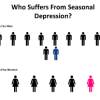- Empty cart.
- Continue Shopping
How Occupational Stress Impacts Male Fertility

Occupational stress is a prevalent issue in today’s fast-paced and demanding work environments. While the negative effects of stress on mental and physical health are well-documented, its impact on male fertility is a topic that has gained increasing attention in recent years.
1. Hormonal Imbalance
Occupational stress can lead to hormonal imbalances in men, which can have a direct impact on fertility. Chronic stress triggers the release of cortisol, a stress hormone, which can interfere with the normal production of testosterone. Reduced testosterone levels can result in sperm abnormalities and a decrease in sperm quantity and quality, making it more challenging for couples to conceive.
2. Sperm Quality and Motility
Stress-related hormonal changes can affect the testes’ ability to produce healthy sperm. Research has shown that high-stress levels can lead to sperm DNA damage, lower sperm motility (ability to move effectively), and increased sperm fragmentation. These factors can reduce the chances of successful fertilization and increase the risk of infertility.
3. Erectile Dysfunction
Occupational stress can contribute to the development of erectile dysfunction (ED) in men. ED is characterized by the inability to achieve or maintain an erection sufficient for sexual intercourse. Stress-induced ED can further compound fertility issues by making it difficult for men to engage in sexual activity at the optimal times for conception.
4. Altered Sexual Behavior
Chronic stress can lead to changes in sexual behavior and desire. Men experiencing high levels of stress may have a reduced interest in sexual activity, which can reduce the frequency of intercourse and the chances of conception.
5. Lifestyle Factors
Occupational stress often leads to unhealthy coping mechanisms, such as poor dietary choices, sedentary behavior, smoking, and excessive alcohol consumption. These lifestyle factors can contribute to obesity, which is associated with reduced fertility and a higher risk of infertility-related conditions.
6. Impact on Spermatogenesis
Spermatogenesis, the process of sperm production, is sensitive to external stressors. Prolonged stress can disrupt this delicate process, leading to abnormalities in sperm production. Stress-induced changes can affect various stages of spermatogenesis, from the development of sperm precursor cells to the maturation of sperm in the testes.
7. Psychological Factors
Occupational stress can also have indirect effects on male fertility through psychological factors. Men experiencing high levels of stress may be more prone to anxiety and depression, which can further reduce libido and sexual performance. The psychological toll of infertility itself can exacerbate stress, creating a cycle that impacts both mental well-being and fertility.
8. Coping Mechanisms
Some individuals cope with occupational stress by adopting unhealthy habits, such as smoking or substance abuse. These behaviors can further diminish fertility and increase the risk of reproductive issues.
Finally, Occupational stress can have a profound impact on male fertility, affecting hormone levels, sperm quality, sexual function, and overall reproductive health. Couples struggling with infertility should consider the potential role of workplace stress in their fertility challenges. Addressing stress through lifestyle modifications, stress management techniques, and seeking support from healthcare professionals and mental health experts can be vital steps toward improving fertility and overall well-being. It’s essential for both employers and individuals to recognize the importance of creating a work environment that promotes mental and physical health to mitigate the adverse effects of occupational stress on male fertility.








